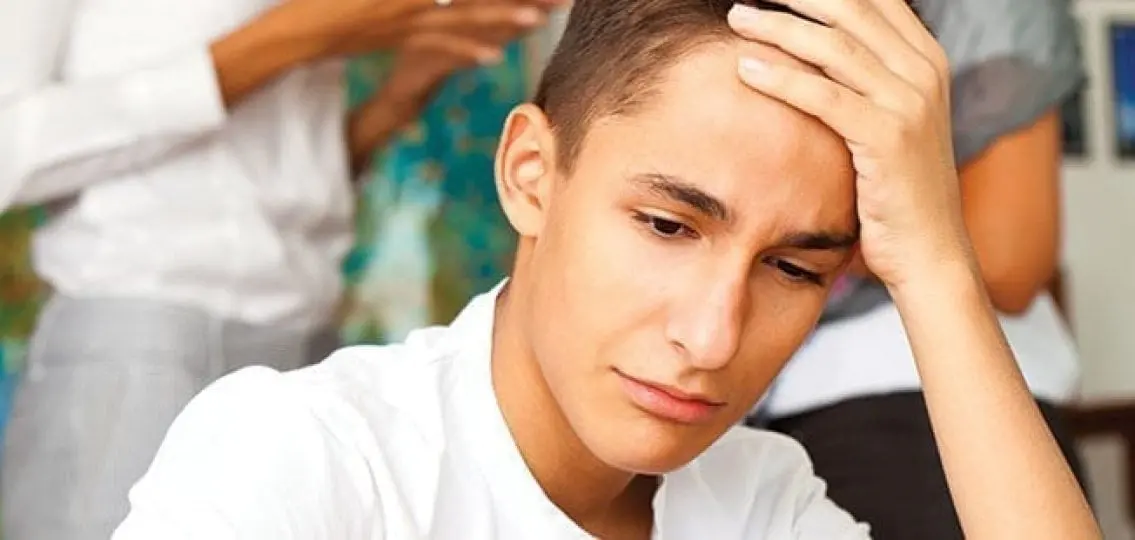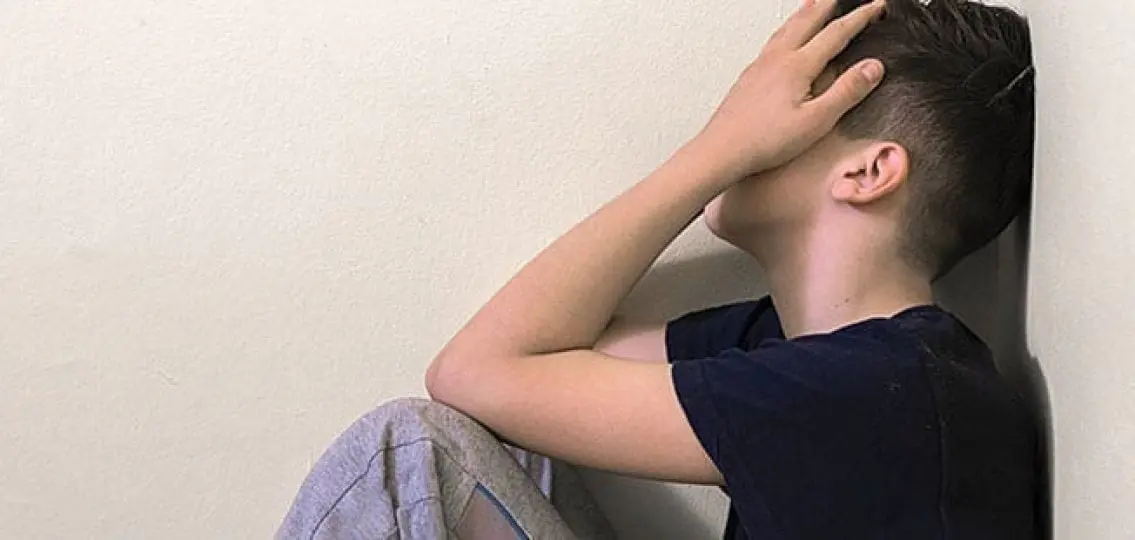What happens when a teen feels one way about a particular issue or problem and the parent has a very different take? At Your Teen, we understand that sometimes you need to look at a problem from multiple perspectives. It can also be helpful to hear from a neutral third party. That’s when we bring in a parenting expert to provide the practical advice you need to bridge the divide and help restore harmony. In this series, we’re talking about anxiety. The teen feels like he is handling it well enough on his own, but his parent wants him to continue therapy. What does the expert recommend?

TEEN | Anonymous
I am breathing heavily. I feel defeated, as bursts of what feels like vomit slip up and down my closed throat. My stomach is turned upside down and in knots. My last breath of air quickly escapes my lips with a quick, pitiful huff.
“I can’t breathe!”
“I think I may be dying!”
“What’s going to happen to me?!”
“Why am I feeling like this?!”
These voices swirl around my head as the thought of death hovers over my small 9-year-old body.
I hold my stomach and race to the nurse’s office with determination. I run through the halls, kids glaring at me as I zoom past.
Suddenly, I notice the nurse’s office doors and rush through.
“I—I need to call my mom!” I shout.
The thin nurse with short and white wispy hair shoots me down with a fierce look of, “I don’t give a crap.”
“What’s your name!?” she bellows.
I proceed to tell her, as she rolls her eyes and asks me what’s wrong.
“I’m really not sure. I just feel really sick and my stomach really hurts! I just really need to call my mom please!” I cry, practically begging the nurse to let me speak to my mother.
“Fine,” she says, grabbing the phone harshly. She dials the number and hands me the phone.
I hear the ringer, echoing in and out of the phone, as the image of death still wraps itself around me. My throat is suddenly closed again, and I feel as if I truly cannot breathe.
“Pick up mom! Please, please!” I think to myself.
When I hear no voice on the other end, my throat closes even more, and that same sickening feeling clouds around me—until suddenly, I hear the angelic voice of my mother through the other line, and all of my anxiety floats away.
This was about five years ago, and it was my very first panic attack. I didn’t know it at the time, but that’s really all it was. Not the flu. Not a sickness. And definitely not death!
Just anxiety. And that’s how I’ve learned to look at it now! Nothing major.
I don’t get panic attacks anymore, but I do sometimes feel anxious and stressed.
When that happens, I watch a funny episode of a TV show and get a good cuddle from my dogs.
I don’t think I need to go back to therapy. Overall, I think I’ve really learned to cope with my anxiety—and despite what my mom says about my panic attacks, I think I’m just experiencing regular high school stress.
PARENT | Anonymous
My son was born anxious. Perhaps it’s because his birth was an emergency C-section; perhaps it’s because I am anxious. It could be because my sister died unexpectedly while I was pregnant with him, and I went into deep mourning. Or it could be bad luck.
Whatever the cause, his intensity was apparent to me in the first few days of his life. When he nursed, he would drink ferociously while reaching up with his hand to yank his hair. I’d gently uncurl his fingers, but he would immediately go back to pulling his blond locks as he gulped his milk.
When he was a young boy, he often missed the school bus due to an upset stomach. Once he was at school, he seemed to be okay, but at home he was often a nervous wreck. He exhibited signs of obsessive orderliness early on, insisting that I throw his socks in his hamper when I put him to bed rather than leave them on the floor overnight.
When he was 9, he didn’t want to be away from me, ever. I sat courtside during tennis lessons, and if I rose to go to the bathroom he’d get a panicked look on his face. That same year, my husband left me, and shock waves rippled through our family. My daughter became angry; my son became more anxious.
With therapy, he was able to overcome some of his OCD and separation anxiety. I gently pushed him to walk away from me in stores or go to sleepovers at friends’ houses. He did get better, but the anxiety never fully subsided.
Now 14 and a freshman in high school, he is much more independent. He has no problem going out on his own, and he volunteers in the community and has a nice group of friends. But he is still anxious about making decisions or making a mistake. He catastrophizes every event, always expecting the worst. He can become very upset in a matter of seconds, and being reminded of his breathing exercises often makes him more anxious.
I want him to see a therapist again, but he refuses.
I understand this is part of the anxiety. Acknowledging it makes it worse, but the only way to treat it is to discuss it, so it’s a vicious cycle. I have four more years to get him ready to leave me. I just want to him to be happy.
EXPERT | Angela Neal-Barnett, Ph.D
What’s going on with this teen? Part of what he’s feeling (and Mom is seeing) is his anxiety, and part of it is being 14 years old. Transitioning to high school is a stressful time, and anxiety can become heightened. Often, there is a need for extra support during this transition. Teens with a history of anxiety can benefit from in-person booster sessions, but like our high school freshman here, many are reluctant to go back into therapy.
Thanks to technology, an online intervention or app can deliver booster sessions or support. Here are two free apps that I recommend:
Mindshift is an app specially designed for teenagers. It functions as a portable coach for the anxious teen wherever they go, with specific tools to address everything from perfectionism to sleep to feelings of panic.
Breathe2Relax offers a portable hands-on diaphragmatic breathing exercise. Deep breathing appears to help our freshman, but being reminded to breathe makes him more anxious. Being in control of his breathing by using the app may help him be more willing to take this step.
Both apps are evidence-based and have undergone rigorous testing.
If these aren’t a fit, there are dozens more apps for teen anxiety. I also recommend a website with great information and videos, www.anxietybc.com. The most important thing is that Mom and son choose an app or other approach that meets his needs.
In this case, I recommend apps because they are so easy for teenagers to use. A teen tapping away on his phone is the most natural sight in the world. No one will know he is using it to be proactive in anxiety-provoking situations. (Of course, he can’t use his phone if anxiety crops up in class, so he should also be open to using his breathing exercises—sans app—as a coping mechanism.)
Mobile apps do not necessarily work for all anxious teens.
Because our high school freshman and his mom don’t agree, they may consider a two-week trial run with the app of his choice.

After that time, they should have an open and honest discussion about the app and how it is working—and about his anxiety. Then, the mother and son can make a decision together about the next step.




